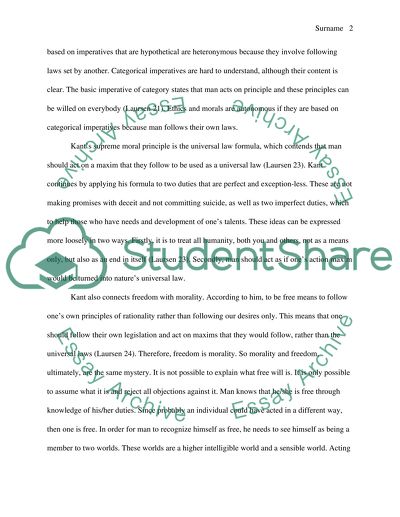Cite this document
(“What are the ultimate principles of morals for both Hume and Kant Essay”, n.d.)
What are the ultimate principles of morals for both Hume and Kant Essay. Retrieved from https://studentshare.org/philosophy/1472495-what-are-the-zhiultimate-principles-of-moralszh
What are the ultimate principles of morals for both Hume and Kant Essay. Retrieved from https://studentshare.org/philosophy/1472495-what-are-the-zhiultimate-principles-of-moralszh
(What Are the Ultimate Principles of Morals for Both Hume and Kant Essay)
What Are the Ultimate Principles of Morals for Both Hume and Kant Essay. https://studentshare.org/philosophy/1472495-what-are-the-zhiultimate-principles-of-moralszh.
What Are the Ultimate Principles of Morals for Both Hume and Kant Essay. https://studentshare.org/philosophy/1472495-what-are-the-zhiultimate-principles-of-moralszh.
“What Are the Ultimate Principles of Morals for Both Hume and Kant Essay”, n.d. https://studentshare.org/philosophy/1472495-what-are-the-zhiultimate-principles-of-moralszh.


